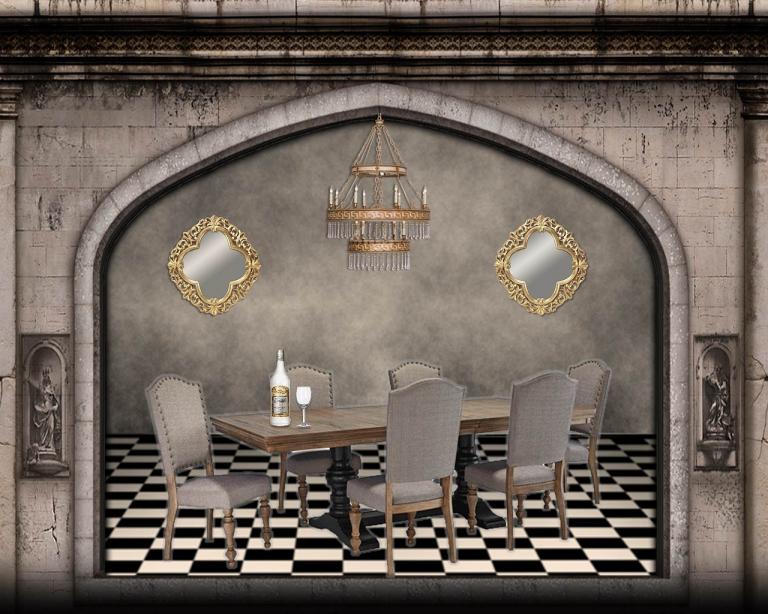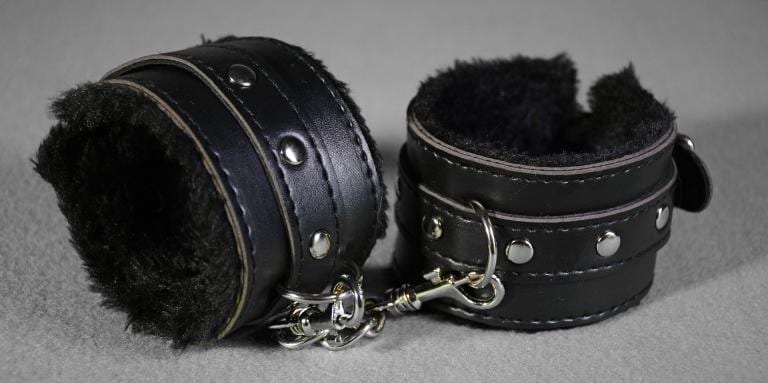Yesterday, I was looking for a piece of mirror and I ended up going down to the guest house. This is an outbuilding on my property, and it’s where my ex lived for the last few months that we were together. I’ve been avoiding going down there for some time now – most of the rest of the house has been rearranged, redecorated. It’s my space, the kids’ space. The guest house remains, perched at the bottom of the drive in a state of disarray, containing the wreckage of our marriage.
But there was supposed to be a mirror down there. (Yes, I know, very symbolic. The Author really does like symbolism, in my experience, and also uses a lot of pathetic fallacy. Naturally, yesterday was a gloomy grey day, the sky heavy with unspent drizzle.) I needed a mirror for my bathroom renovation, so down I went.
I didn’t find the mirror. I did find tears.
They’ve been building for a while now, and I’ve been aware of that. Grief builds like contractions only in slow motion. There are days, weeks, where everything is slowly tightening. You know it’s only a matter of time before the waters break, but you never quite know when.
For me it was yesterday, looking at all of the old garage-sale finds that he brought back, the board games we collected, the stuffed lion that I gave him when I was still hoping that we could work things out. I started sobbing, gripping an old weathered whiskey barrel that we used as a side table.
This is the great mystery: that even when a relationship has become so toxic that it must be escaped, there remains an attachment. There were stories that we told to one another in that space about a life that we wanted to live together. Promises that were never kept. Hopes that never bore fruit. Souvenirs of moments when we were happy, when things looked like they might get better.
But the wages of sin is death.
Strip it of its moralism, the shaming of the sinner, the ways that we entwine the notion of the sin with the idea of a bad person, and you have a fact: certain behaviours destroy lives. Apparently the Orthodox have some sort of understanding of sin in which culpability plays a less prominent role than in Roman Catholic thought – that we ask God for mercy, not only for those things which we have done and which we have failed to do “through my most grevious fault,” but also for those evils which we were powerless to prevent.
“We understood that we were powerless against alcoholism…” “I cannot change it. I cannot control it. I did not cause it.”
Alcoholism, addiction, perhaps these are in that category of evil. Destructive, but out of our control. The addict himself always feels trapped, unable to move in any direction, compelled towards their own destruction like the hero of a Greek tragedy. It is AA dogma that the tragic ending is inevitable, that the resurrection comes only after they hit bottom, after they have gone into the tomb. If it comes at all.
So I stood there, amid the memorabilia and the ruins, and I wept and prayed and wanted so badly, again, to be somehow able to go and call him out of the darkness. To be the voice of Christ crying “Lazarus, come forth!” At the very least, to be the angel that rolls away the stone.
It’s significant, one of those recurrent motifs, foreshadowed at the beginning of our relationship. I was young, my imagination fed on a diet of 19th Century novels, and I had just recently read Crime and Punishment. I wanted so badly to be Sonya, the sinner-saint whose love saves the troubled hero.
I didn’t notice that there was no happy ending to that story, that she follows Raskolnikov to Siberia only to have him ignore her, lost in his own misery. Dostoevsky had to finish the book in a hurry to pay off the debts of his own addictions, and he never quite managed to get his Lazarus out of the grave.
As I mentioned before, the Author knows His business. He makes use of literary devices. Metaphor. Allusion. Foreshadowing.
I had called, and shouted, and pleaded, bullied and begged, bargained and cajoled, prayed and wept a hundred thousand times for my ex to come forth, out of the tomb of his addiction, and he never did. But now, maybe, when I had let go, had moved out of God’s way, maybe now it would work?
I still wanted, perhaps still want, to be his saviour. I was willing to suffer for that in marriage, and afterwards to suffer for it through grief.
This is my problem, at bottom. Someone asked me to consider my part in my marriage breaking down, and this, I think, is it: that I wanted to redeem him. That in some way we were both each other’s projects. He wanted to make of me a great writer. I wanted to make of him a better human being. We were both so deeply invested in those goals, in the reflection of our own efforts mirrored in the other’s life. And we were angry, disappointed, when the mirror showed us limitation, imperfection, weakness, failure, powerlessness.
“The rage of Caliban seeing his own face in the mirror.”
But yesterday, the mirror wasn’t there. I went through the guest house several times looking for it. I was sure that was where I’d left it: a large, full-length piece of glass that I’d intended to install about the door but never quite got around to putting in. A bit of material from an unfinished project. I was sure it was there.
Only it wasn’t.
There was no instantaneous epiphany. I cried a lot, and then looked in the garage, and finally went and bought a completely different mirror at the local thrift store.
It wasn’t until later, as I was trying to go to sleep, that finally I got it. I realized that I was still attached to this idea that somehow I would save him. That by my actions I could pull him up out of addiction – even if those actions involved letting go so that he could hit bottom and maybe have a chance to come back.
I still wanted to have control. To change him. To cause him to choose life.
It is, I think, a hidden temptation that comes with intercessory prayer. It can become a way of trying to manipulate life, events, other people, through remote and often superstitious means. The ego remains devoted to the idea that it can exercise power over the lives and wills of others, eliminating evil with positive energy, good intentions, prayers, good vibes. What appears to be solicitude is really a desire to be able to say “Look, I did that. I prayed for that person for 20 years, and finally he repented. Marvel at my love and perseverance. Acknowledge me a saint.”
This is, I think, the wisdom behind the Catholic practice of praying for another’s intentions. Not for some particular outcome, for their repentance, for their soul, but for their intentions. It’s a radical act of respect for the other person’s autonomy; an expression of trust that they will reach for graces. It assumes that the question of what they really need is a question best left to them and God.
Let go, and let God.
It’s funny. In my own life, I find it very easy to trust that the Author knows what He is doing. That Providence is giving me exactly what I require. That all of the right elements are in place, and that the plot is working.
Even when this involves suffering and loss, I don’t find it difficult to accept that. All good stories involve those elements. Character growth happens because of conflict. And when it feels like you’re buried, frozen, and nothing is progressing, that’s just the long winter that comes before the spring. I have never found it particularly difficult to accept that this is how life works.
For me.
But for him, for whatever reason, I never could accept that. I wanted to solve his problems and give him happiness and make a paradise for him on earth. I wanted to complete him. I didn’t want to accept that loss and suffering and pain might be part of his plot. That losing me might be part of his story. And that his story might go on, and have new chapters, where I am not the heroine. Where I’m not even a character at all.
I’d let go in a material sense, but I still wanted to somehow, impossibly, come back in the last act and be his saviour. That ambition needs to be pruned away, cut back. I need to let him be him, and me be me, and God be God.
Image by Kristin Baldeschwiler from Pixabay
Stay in touch! Like Catholic Authenticity on Facebook:












